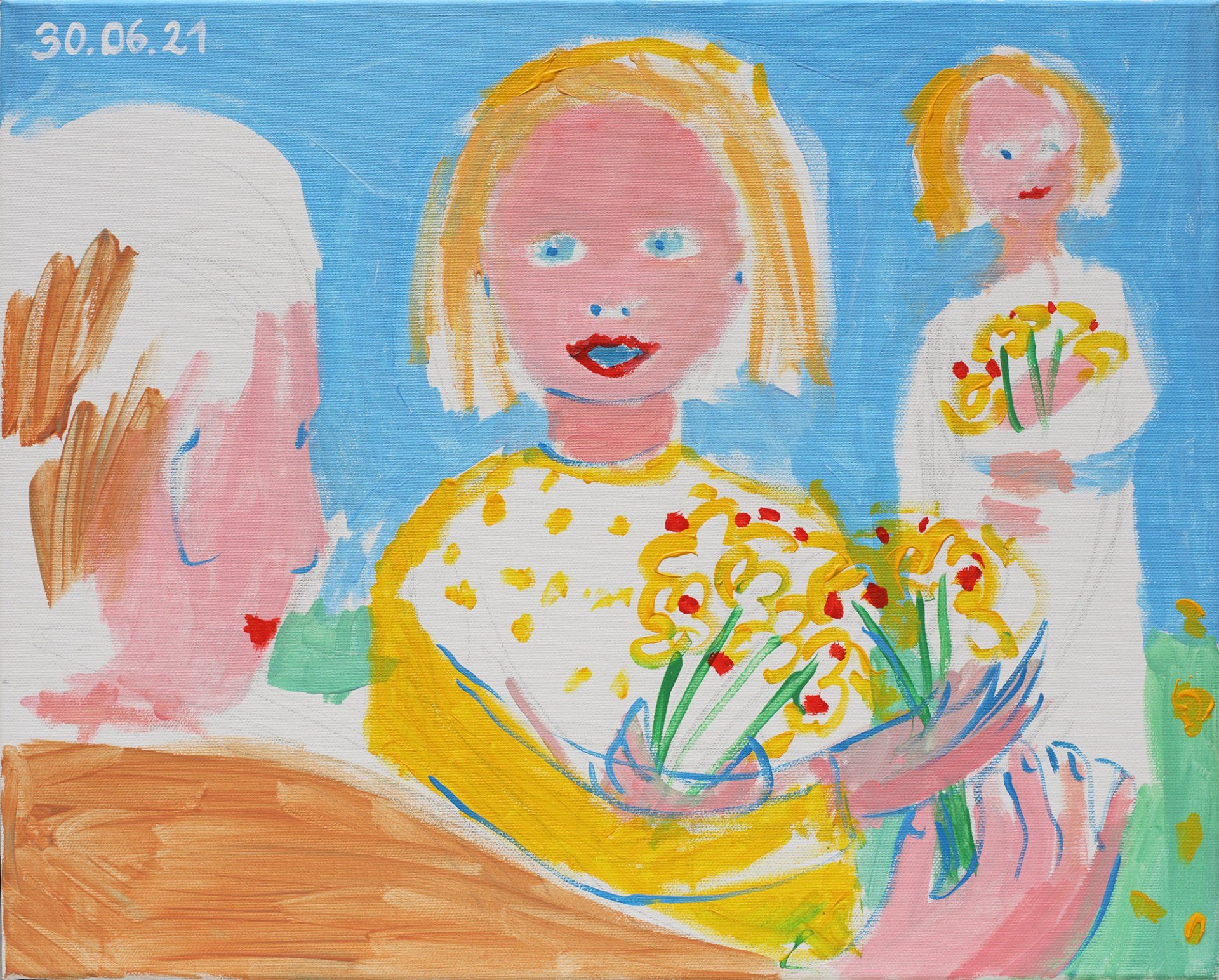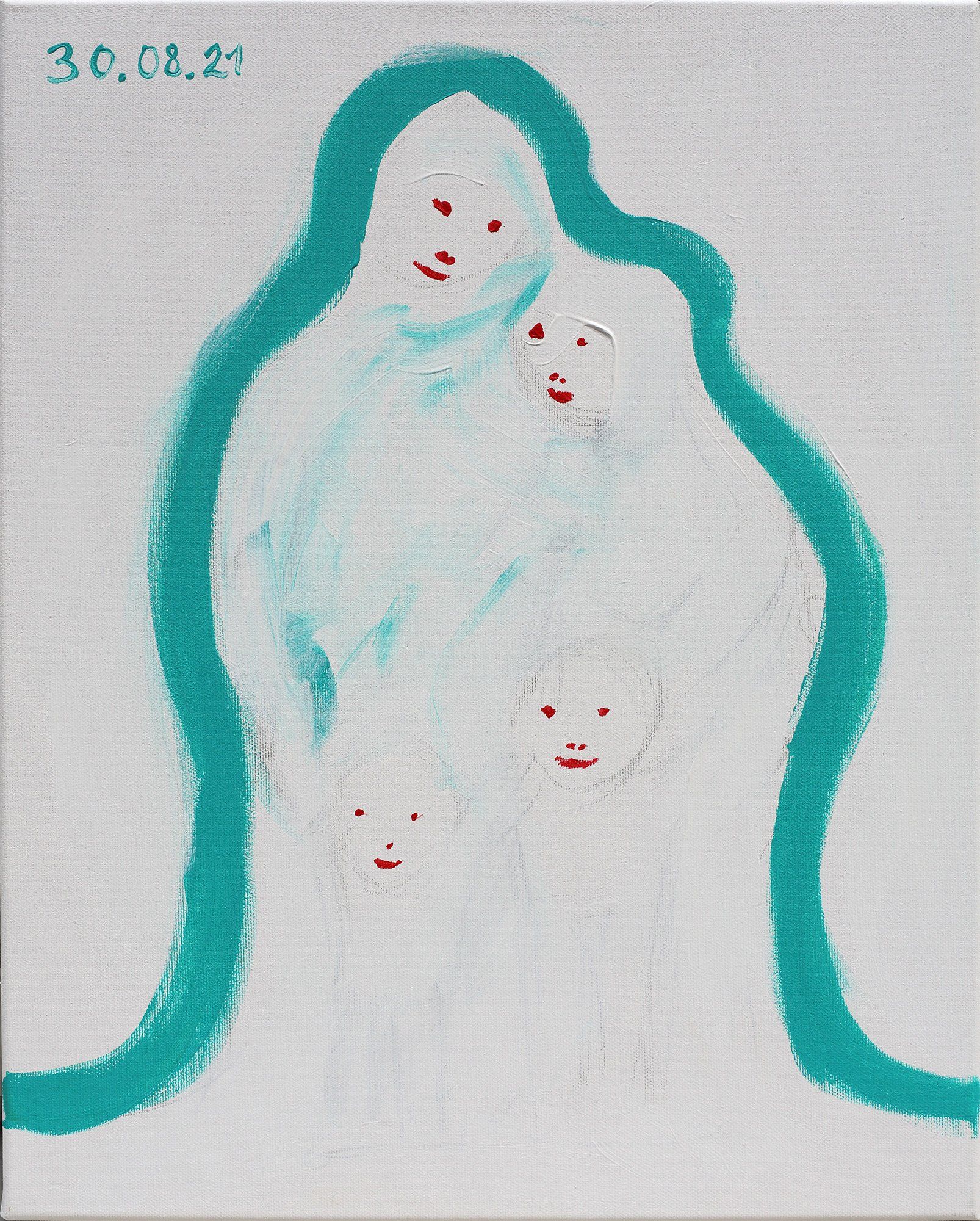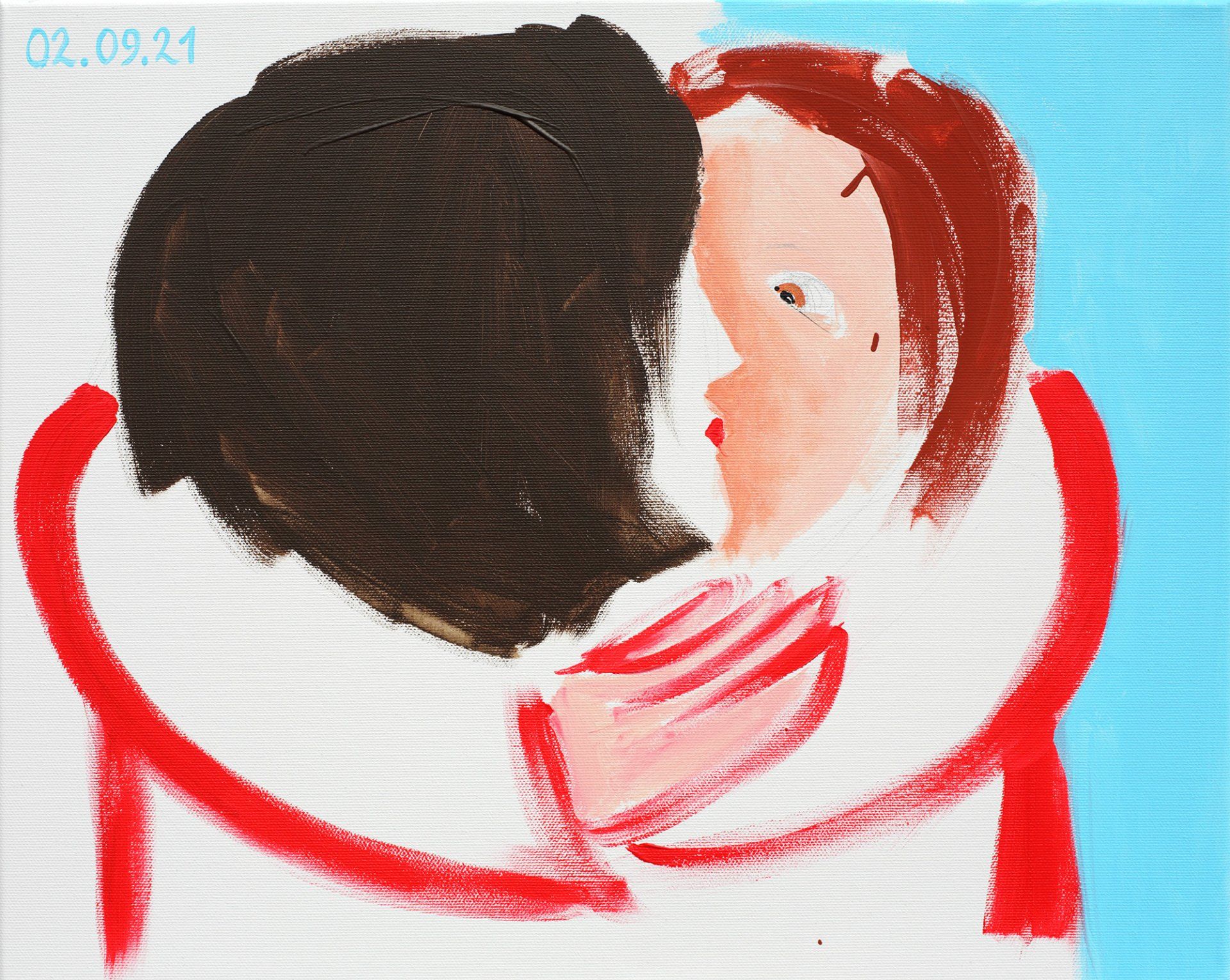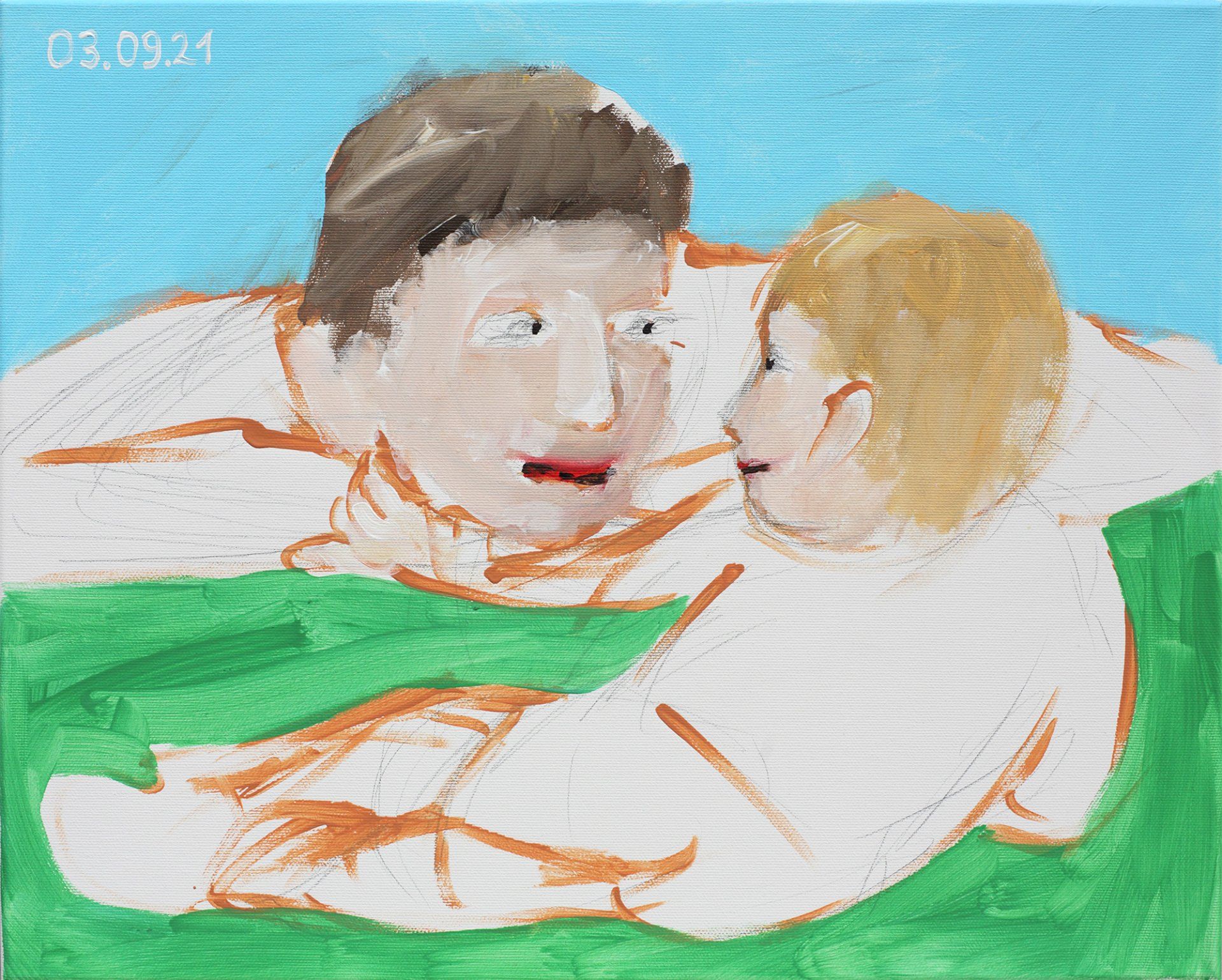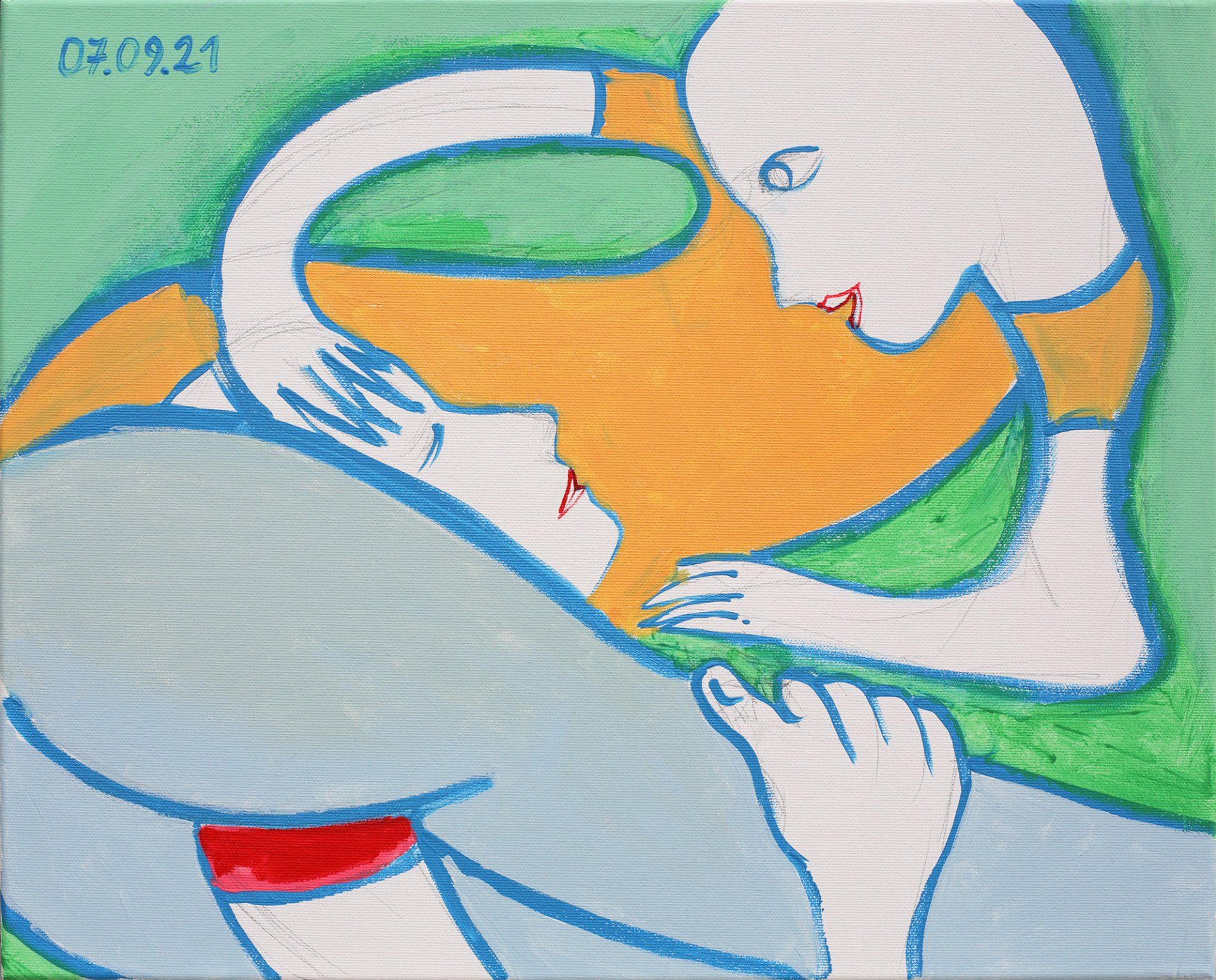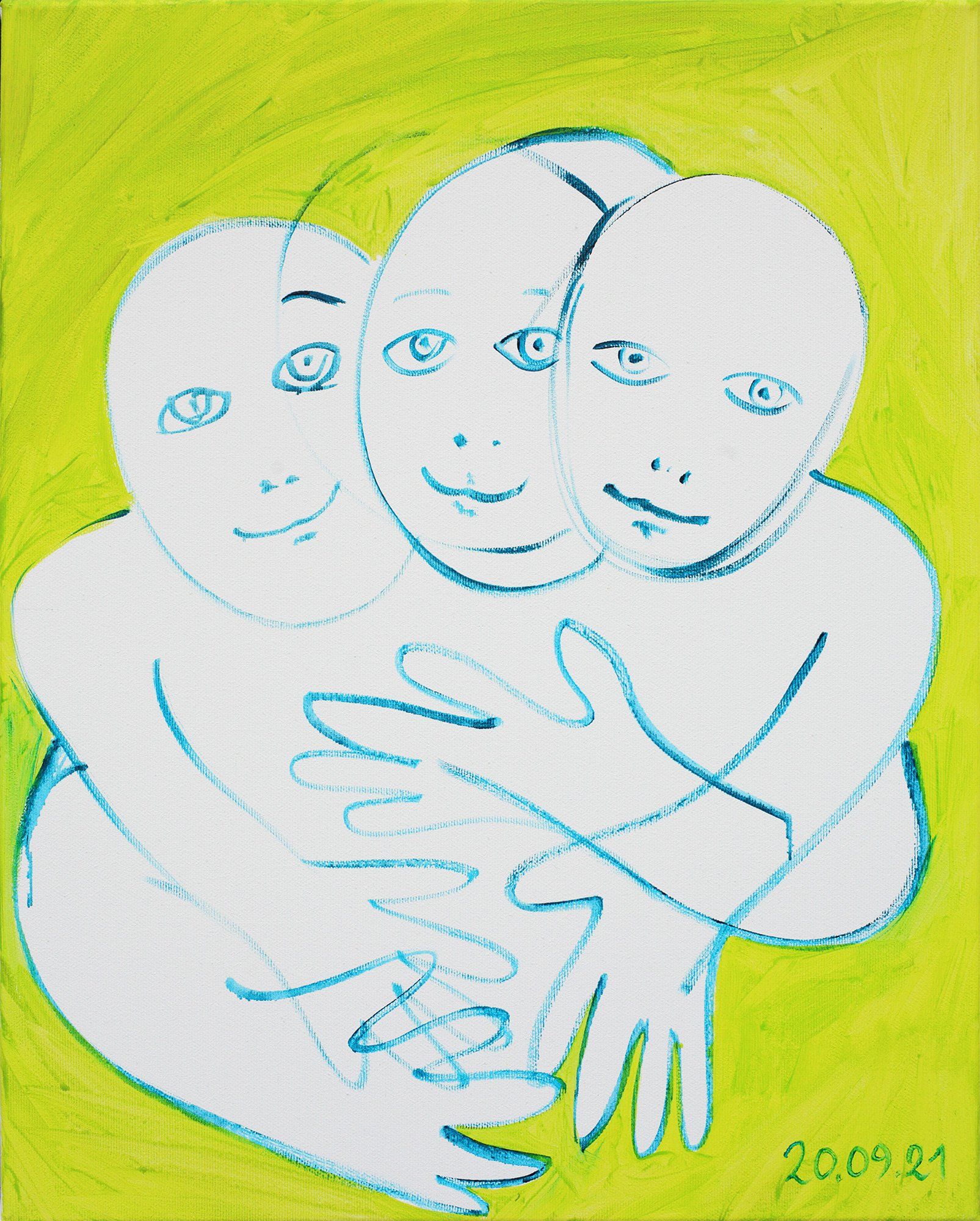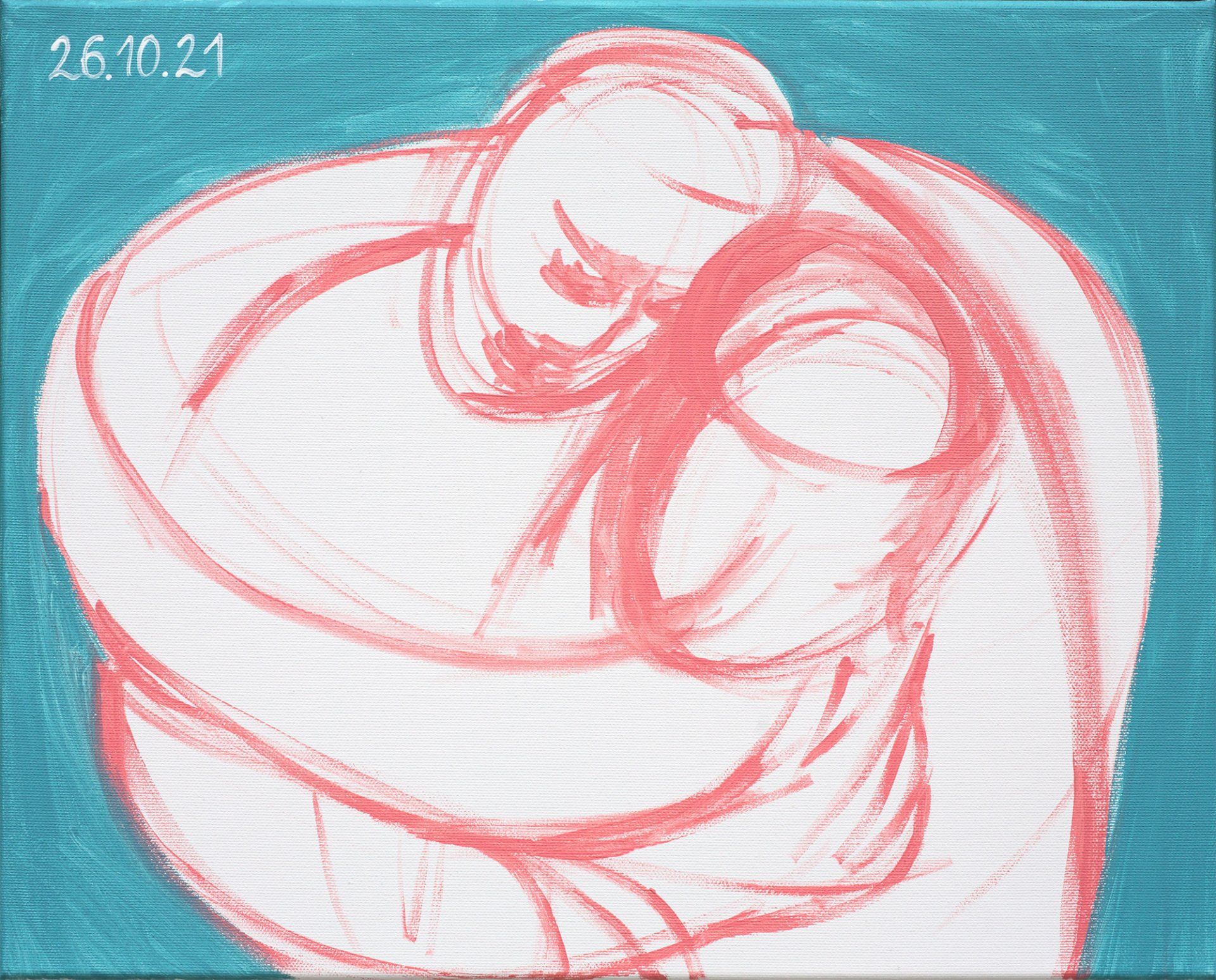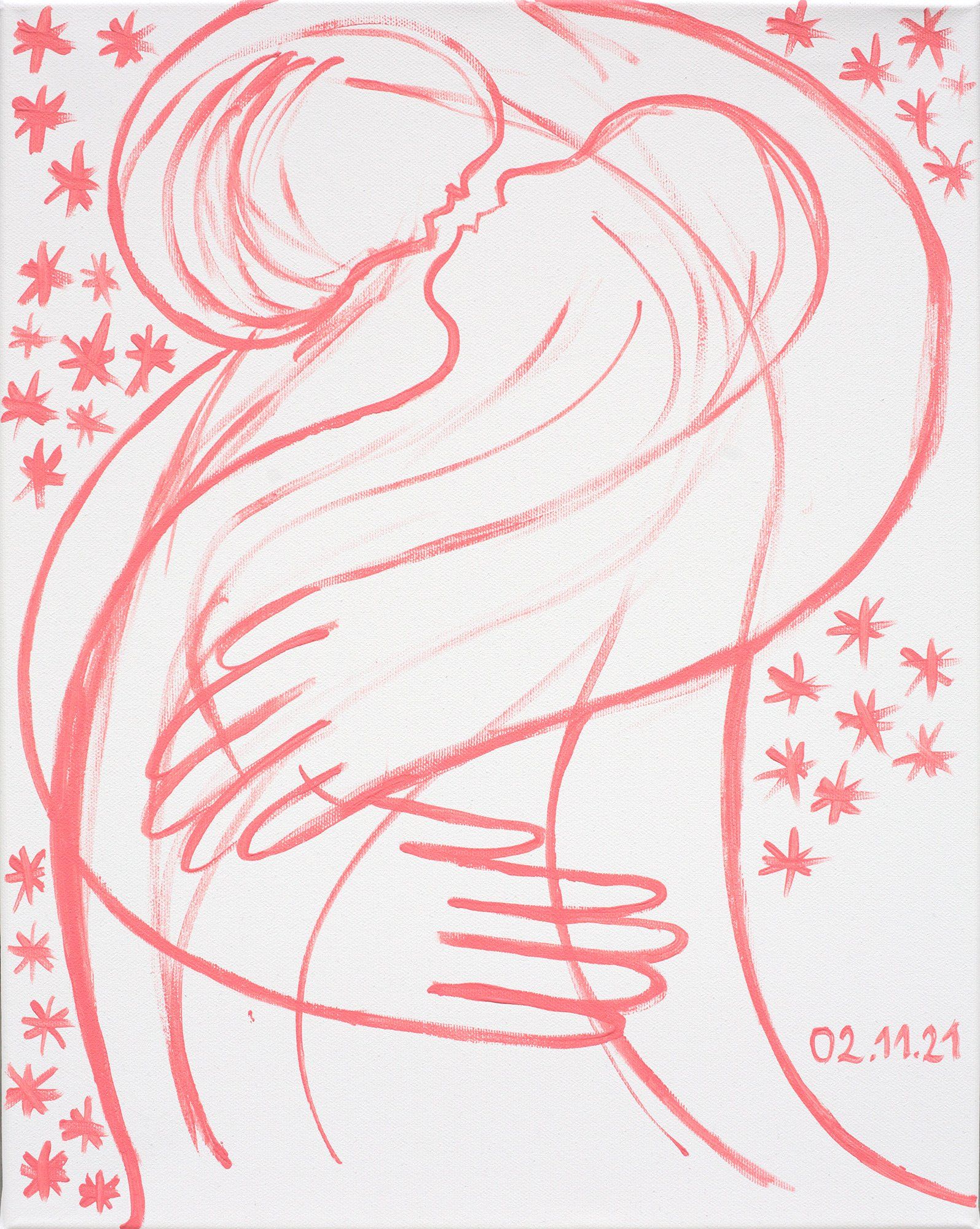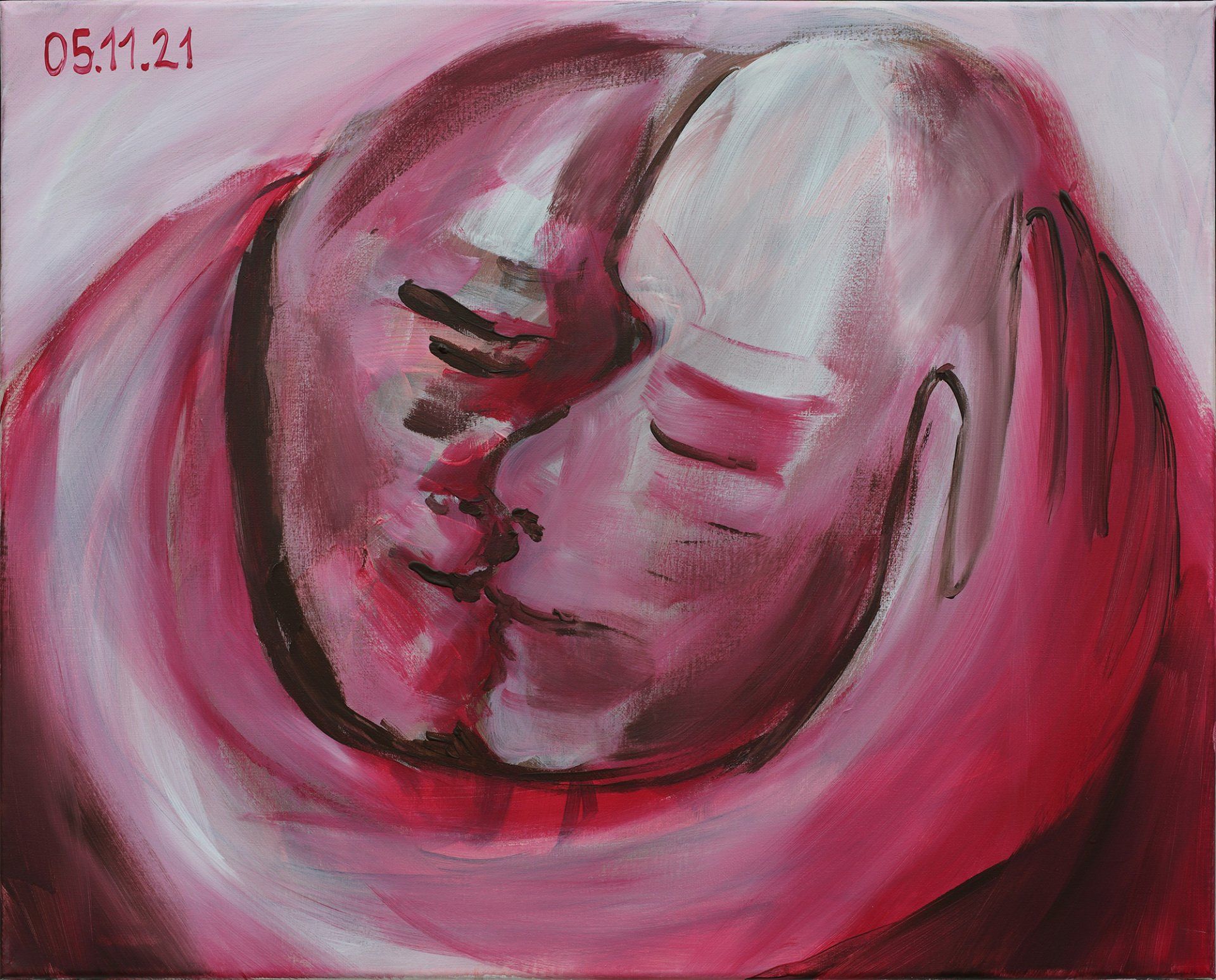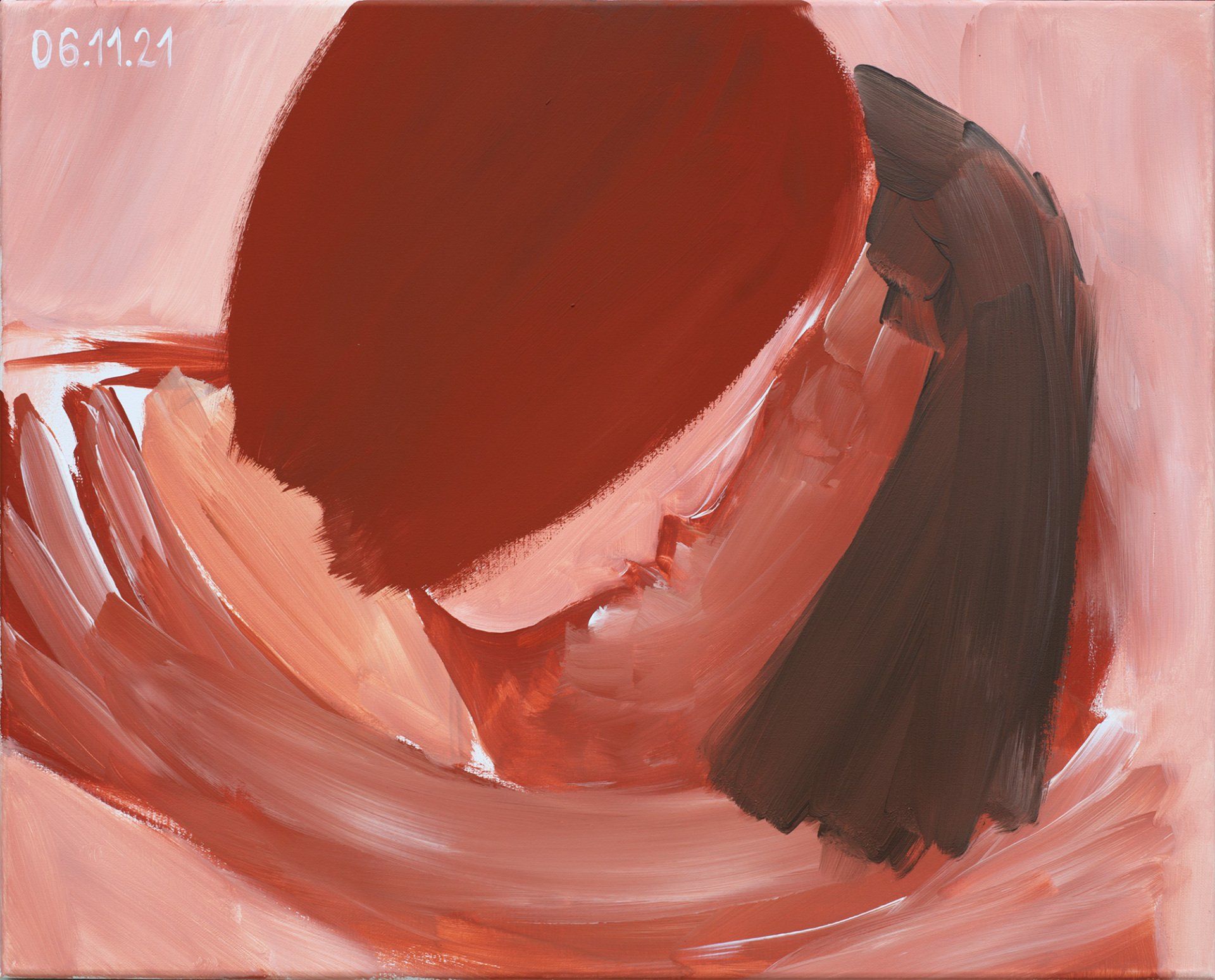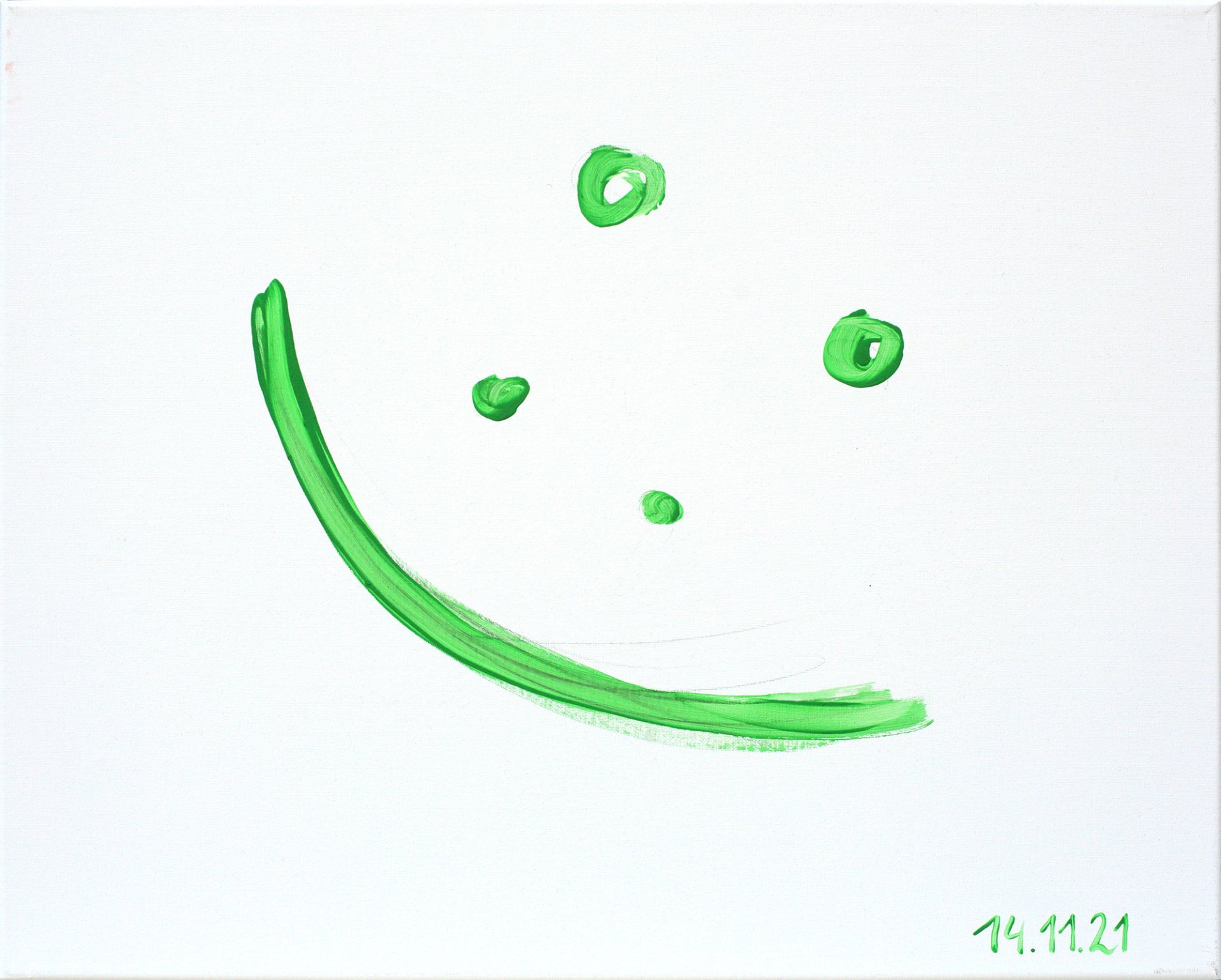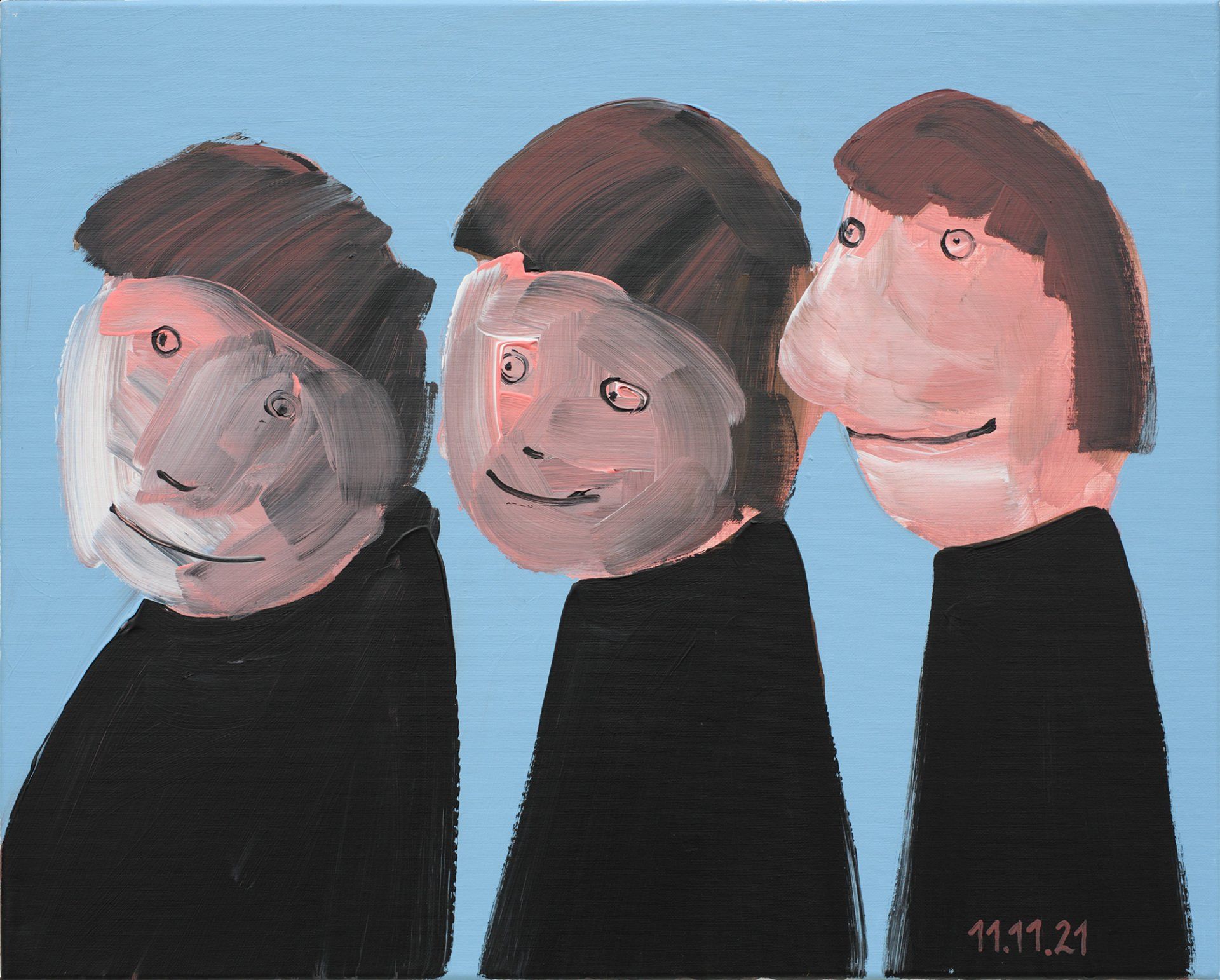"Lovely Paintings" by Sebastian Bieniek 2021
"Lovely Paintings", 2021, is a series of 30 paintings, each 40 cm. x 50 cm., painted in acrylic on canvas, by Sebastian Bieniek.
The artist painted at the end of the year 2021 nearly every day a painting with the aim to put good energy and feelings into it as the year 2021 was for many rather a sad and a dark year.
Following the pattern of "make the opposite to get the balance" he decided to focus in anything he thought is good.
That's the way the paintings were made.
"Lovely Painting No. 1"
"Lovely Painting no. 1" by Sebastian Bieniek, 2021. Acrylic on canvas. 40 cm. x 50 cm.
"Lovely Painting No. 2"
"Lovely Painting no. 2" by Sebastian Bieniek, 2021. Acrylic on canvas. 50 cm. x 40 cm.
"Lovely Painting No. 3"
"Lovely Painting no. 3" by Sebastian Bieniek, 2021. Acrylic on canvas. 40 cm. x 50 cm.
"Lovely Painting No. 4"
"Lovely Painting no. 4" by Sebastian Bieniek, 2021. Acrylic on canvas. 40 cm. x 50 cm.
"Lovely Painting No. 5"
"Lovely Painting no. 5" by Sebastian Bieniek, 2021. Acrylic on canvas. 40 cm. x 50 cm.
"Lovely Painting No. 6"
"Lovely Painting no. 6" by Sebastian Bieniek, 2021. Acrylic on canvas. 40 cm. x 50 cm.
"Lovely Painting No. 7"
"Lovely Painting no. 7" by Sebastian Bieniek, 2021. Acrylic on canvas. 40 cm. x 50 cm.
"Lovely Painting No. 8"
"Lovely Painting no. 8" by Sebastian Bieniek, 2021. Acrylic on canvas. 50 cm. x 40 cm.
"Lovely Painting No. 9"
"Lovely Painting no. 9" by Sebastian Bieniek, 2021. Acrylic on canvas. 50 cm. x 40 cm.
"Lovely Painting No. 10"
"Lovely Painting no. 10" by Sebastian Bieniek, 2021. Acrylic on canvas. 50 cm. x 40 cm.
"Lovely Painting No. 11"
"Lovely Painting no. 11" by Sebastian Bieniek, 2021. Acrylic on canvas. 40 cm. x 50 cm.
"Lovely Painting No. 12"
"Lovely Painting no. 12" by Sebastian Bieniek, 2021. Acrylic on canvas. 50 cm. x 40 cm.
"Lovely Painting No. 13"
"Lovely Painting no. 13" by Sebastian Bieniek, 2021. Acrylic on canvas. 40 cm. x 50 cm.
"Lovely Painting No. 14"
"Lovely Painting no. 14" by Sebastian Bieniek, 2021. Acrylic on canvas. 50 cm. x 40 cm.
"Lovely Painting No. 15"
"Lovely Painting no. 15" by Sebastian Bieniek, 2021. Acrylic on canvas. 40 cm. x 50 cm.
"Lovely Painting No. 16"
"Lovely Painting no. 16" by Sebastian Bieniek, 2021. Acrylic on canvas. 40 cm. x 50 cm.
"Lovely Painting No. 17"
"Lovely Painting no. 17" by Sebastian Bieniek, 2021. Acrylic on canvas. 40 cm. x 50 cm.
"Lovely Painting No. 18"
"Lovely Painting no. 18" by Sebastian Bieniek, 2021. Acrylic on canvas. 40 cm. x 50 cm.
"Lovely Painting No. 19"
"Lovely Painting no. 19" by Sebastian Bieniek, 2021. Acrylic on canvas. 40 cm. x 50 cm.
"Lovely Painting No. 20"
"Lovely Painting no. 20" by Sebastian Bieniek, 2021. Acrylic on canvas. 40 cm. x 50 cm.
"Lovely Painting No. 21"
"Lovely Painting no. 21" by Sebastian Bieniek, 2021. Acrylic on canvas. 50 cm. x 40 cm.
"Lovely Painting No. 22"
"Lovely Painting no. 22" by Sebastian Bieniek, 2021. Acrylic on canvas. 40 cm. x 50 cm.
"Lovely Painting No. 23"
"Lovely Painting no. 23" by Sebastian Bieniek, 2021. Acrylic on canvas. 40 cm. x 50 cm.
"Lovely Painting No. 24"
"Lovely Painting no. 24" by Sebastian Bieniek, 2021. Acrylic on canvas. 40 cm. x 50 cm.
"Lovely Painting No. 25"
"Lovely Painting no. 25" by Sebastian Bieniek, 2021. Acrylic on canvas. 40 cm. x 50 cm.
"Lovely Painting No. 26"
"Lovely Painting no. 26" by Sebastian Bieniek, 2021. Acrylic on canvas. 40 cm. x 50 cm.
"Lovely Painting No. 27"
"Lovely Painting no. 27" by Sebastian Bieniek, 2021. Acrylic on canvas. 40 cm. x 50 cm.
"Lovely Painting No. 28"
"Lovely Painting no. 28" by Sebastian Bieniek, 2021. Acrylic on canvas. 40 cm. x 50 cm.
"Lovely Painting No. 29"
"Lovely Painting no. 29" by Sebastian Bieniek, 2021. Acrylic on canvas. 40 cm. x 50 cm.
"Lovely Painting No. 30"
"Lovely Painting no. 30" (Socrates at the beaty contest) by Sebastian Bieniek, 2021. Acrylic on canvas. 40 cm. x 50 cm.
The beauty contest illustrates the difficulty with the term for and maybe the very idea of gentlemanliness—are good and beautiful two criteria or one? If they are two, how are they related? Could the beautiful be whatever compellingly attracts? Furthermore, what is truly and justly compelling?
5
Callias now said, “Critobulus, are you going to refuse to enter the lists in the beauty contest with Socrates?”
“Undoubtedly!” said Socrates; “for probably he notices that the procurer stands high in the favour of the judges.” [2]
“But yet in spite of that,” retorted Critobulus, “I do not shun the contest. So make your plea, if you can produce any profound reason, and prove that you are more handsome than I. Only,” he added, “let some one bring the light close to him.”
“The first step, then, in my suit,” said Socrates, “is to summon you to the preliminary hearing; be so kind as to answer my questions.”
“And you proceed to put them.” [3]
“Do you hold, then, that beauty is to be found only in man, or is it also in other objects?”
Crit. “In faith, my opinion is that beauty is to be found quite as well in a horse or an ox or in any number of inanimate things. I know, at any rate, that a shield may be beautiful, or a sword, or a spear.” [4]
Soc. “How can it be that all these things are beautiful when they are entirely dissimilar?”
“Why, they are beautiful and fine,”1 answered Critobulus, “if they are well made for the respective functions for which we obtain them, or if they are naturally well constituted to serve our needs.” [5]
Soc. “Do you know the reason why we need eyes?”
Crit. “Obviously to see with.”
“In that case, it would appear without further 9ado that my eyes are finer ones than yours.”
“How so?”
“Because, while yours see only straight ahead, mine, by bulging out as they do, see also to the sides.”
Crit. “Do you mean to say that a crab is better equipped visually than any other creature?”
Soc. “Absolutely; for its eyes are also better set to insure strength.” [6]
Crit. “Well, let that pass; but whose nose is finer, yours or mine?”
Soc. “Mine, I consider, granting that Providence made us noses to smell with. For your nostrils look down toward the ground, but mine are wide open and turned outward so that I can catch scents from all about.”
“But how do you make a snub nose handsomer than a straight one?”
Soc. “For the reason that it does not put a barricade between the eyes but allows them unobstructed vision of whatever they desire to see; whereas a high nose, as if in despite, has walled the eyes off one from the other.” [7]
“As for the mouth,” said Critobulus, “I concede that point. For if it is created for the purpose of biting off food, you could bite off a far bigger mouthful than I could. And don't you think that your kiss is also the more tender because you have thick lips?”
Soc. “According to your argument, it would seem that I have a mouth more ugly even than an ass's. But do you not reckon it a proof of my superior beauty that the River Nymphs, goddesses as they are, bear as their offspring the Seileni, who resemble me more closely than they do you?” [8]
“I cannot argue any longer with you,” answered Critobulus; “let them distribute the ballots, so that I may know without suspense what fine or punishment I must undergo. Only,” he continued, “let the balloting be secret, for I am afraid that the ‘wealth' you and Antisthenes possess will overmaster me.” [9]
So the maiden and the lad turned in the ballots secretly. While this was going on, Socrates saw to it that the light should be brought in front of Critobulus, so that the judges might not be misled, and stipulated that the prize given by the judges to crown the victor should be kisses and not ribbons. [10] When the ballots were turned out of the urn and proved to be a unanimous verdict in favour of Critobulus, “Faugh!” exclaimed Socrates; “your money, Critobulus, does not appear to resemble Callias's. For his makes people more honest, while yours is about the most potent to corrupt men, whether members of a jury or judges of a contest.”
1 Critobulus, of course, gets into trouble by his poor definition of beauty. In the Greek the ensuing discussion is made plausible by the fact that throughout both disputants use only one word, καλός, which means not only “beautiful” or handsome but also “glorious, noble, excellent, fine;” and though starting with the first meaning it soon shifts to the last. The translator is compelled to use different terms for this in the two parts of the argument.
Xenophon. Xenophon in Seven Volumes, 4. Harvard University Press, Cambridge, MA; William Heinemann, Ltd., London. 1979.
5
Callias now said, “Critobulus, are you going to refuse to enter the lists in the beauty contest with Socrates?”
“Undoubtedly!” said Socrates; “for probably he notices that the procurer stands high in the favour of the judges.” [2]
“But yet in spite of that,” retorted Critobulus, “I do not shun the contest. So make your plea, if you can produce any profound reason, and prove that you are more handsome than I. Only,” he added, “let some one bring the light close to him.”
“The first step, then, in my suit,” said Socrates, “is to summon you to the preliminary hearing; be so kind as to answer my questions.”
“And you proceed to put them.” [3]
“Do you hold, then, that beauty is to be found only in man, or is it also in other objects?”
Crit. “In faith, my opinion is that beauty is to be found quite as well in a horse or an ox or in any number of inanimate things. I know, at any rate, that a shield may be beautiful, or a sword, or a spear.” [4]
Soc. “How can it be that all these things are beautiful when they are entirely dissimilar?”
“Why, they are beautiful and fine,”1 answered Critobulus, “if they are well made for the respective functions for which we obtain them, or if they are naturally well constituted to serve our needs.” [5]
Soc. “Do you know the reason why we need eyes?”
Crit. “Obviously to see with.”
“In that case, it would appear without further 9ado that my eyes are finer ones than yours.”
“How so?”
“Because, while yours see only straight ahead, mine, by bulging out as they do, see also to the sides.”
Crit. “Do you mean to say that a crab is better equipped visually than any other creature?”
Soc. “Absolutely; for its eyes are also better set to insure strength.” [6]
Crit. “Well, let that pass; but whose nose is finer, yours or mine?”
Soc. “Mine, I consider, granting that Providence made us noses to smell with. For your nostrils look down toward the ground, but mine are wide open and turned outward so that I can catch scents from all about.”
“But how do you make a snub nose handsomer than a straight one?”
Soc. “For the reason that it does not put a barricade between the eyes but allows them unobstructed vision of whatever they desire to see; whereas a high nose, as if in despite, has walled the eyes off one from the other.” [7]
“As for the mouth,” said Critobulus, “I concede that point. For if it is created for the purpose of biting off food, you could bite off a far bigger mouthful than I could. And don't you think that your kiss is also the more tender because you have thick lips?”
Soc. “According to your argument, it would seem that I have a mouth more ugly even than an ass's. But do you not reckon it a proof of my superior beauty that the River Nymphs, goddesses as they are, bear as their offspring the Seileni, who resemble me more closely than they do you?” [8]
“I cannot argue any longer with you,” answered Critobulus; “let them distribute the ballots, so that I may know without suspense what fine or punishment I must undergo. Only,” he continued, “let the balloting be secret, for I am afraid that the ‘wealth' you and Antisthenes possess will overmaster me.” [9]
So the maiden and the lad turned in the ballots secretly. While this was going on, Socrates saw to it that the light should be brought in front of Critobulus, so that the judges might not be misled, and stipulated that the prize given by the judges to crown the victor should be kisses and not ribbons. [10] When the ballots were turned out of the urn and proved to be a unanimous verdict in favour of Critobulus, “Faugh!” exclaimed Socrates; “your money, Critobulus, does not appear to resemble Callias's. For his makes people more honest, while yours is about the most potent to corrupt men, whether members of a jury or judges of a contest.”
1 Critobulus, of course, gets into trouble by his poor definition of beauty. In the Greek the ensuing discussion is made plausible by the fact that throughout both disputants use only one word, καλός, which means not only “beautiful” or handsome but also “glorious, noble, excellent, fine;” and though starting with the first meaning it soon shifts to the last. The translator is compelled to use different terms for this in the two parts of the argument.
Xenophon. Xenophon in Seven Volumes, 4. Harvard University Press, Cambridge, MA; William Heinemann, Ltd., London. 1979.

